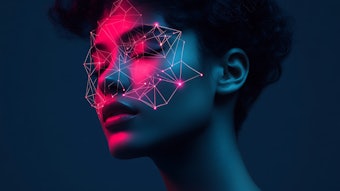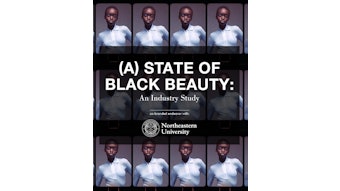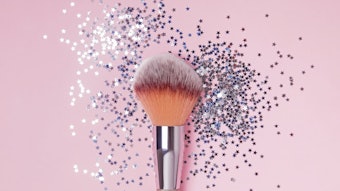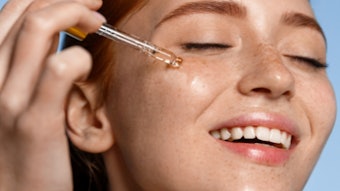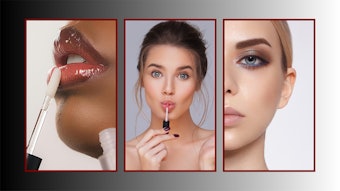
George Henry, Associate Analyst at Global Data will lead a session at in-cosmetic Global on ‘Tech + digital: the latest trends impacting beauty’. Taking place on Tuesday 4 April at 10:00, the session will explore how significant ‘smart’ and digital technology is empowering consumers in their product choices; the latest trends that are influencing consumer behaviors; and how personal care brands can innovate to maximize these growing opportunities. For more information on the in-cosmetics Global 2019 education programme, visit: https://www.in-cosmetics.com/global
Smart technology has changed the traditional path to purchase for beauty consumers. From virtually trying on makeup looks in the beauty aisle to creating tailor-made products directly from a smartphone, digital technology provides shoppers with an individualized experience every step of the way.
Global Cosmetic Industry caught up with George Henry, associate analyst at GlobalData, to discuss how smart technology is shaping consumer choices and how brands integrating emerging technologies into marketing and brand experience.
Global Cosmetic Industry: How is smart/digital technology shaping consumer product choices?
George Henry (GH): As smart and digital technologies become increasingly commonplace, brands are turning towards experience-orientated services to enhance their product discovery and sales. In terms of the impact on the beauty industry, augmented reality (AR) is one example that is increasingly used to allow customers to "try before they buy"—creating a more interactive purchasing experience. L’Oréal’s recent acquisition of the AR make-up app, ModiFace, is one example of major brands expanding on this innovation. The brand’s NYX app allows prospective customers to "trial" products in real-time through AR filters. This time-saving function allows consumers to efficiently experiment without the inconvenience of removing and re-applying make-up.
Similarly, new technologies are also providing consumers with the tools to better understand and diagnose their beauty needs. This presents an emerging opportunity as over a third (38%) of global consumers say they are often or always influenced by how digitally advanced/"smart" a product is when making their beauty purchases according to GlobalData’s Q3 global consumer survey 2018. An example of this approach includes the advent of “magic mirrors” – smart products that allow its user to pull data for skin reports; as well as assessments on past and present conditions. The HiMirror is one innovation that allows users to access hydration reports from voice commands, in addition to featuring an entertainment center compatible with social media and Spotify.
Going forward, the pervasion of digital technology and smart products will continue to offer increasingly personalized solutions in the beauty space. The digital connectivity that comes with the Internet of Things (IoT) allows portability of data through cross-platform usage such as smartphone apps and is sure to develop further. This continuous tracking and personalization can allow consumers to store, share, and track data on their teeth brushing technique or skin health for instance. Offering these advanced health and beauty solutions will resonate well with consumers who are seeking to better understand their individual personal care needs, optimize their care and hygiene regimes, and experience unique consumption occasions.
Global Cosmetic Industry: What insights do you have regarding brands integrating emerging technologies into marketing and brand experience?
GH: Emerging technologies illustrate how consumer demand for personalized products and unique services is forcing beauty brands to duly innovate. This is important because they must adapt to rapidly changing consumer demands and purchasing habits which are reshaping the beauty marketplace. One such example is the shift to online shopping, forcing brands to rethink the purchasing journey both on and offline. This is particularly prevalent among younger generations with over a third (35%) of millennials globally typically purchasing beauty and grooming products online (GlobalData’s Q3 2018 global consumer survey).
Emerging technologies are unquestionably making cosmetic brands increasingly experience orientated. Artificial intelligence (AI) and Augmented Reality (AR) is already being used to offer personalization benefits to consumers. This is important as, according to GlobalData’s Q3 2018 global consumer survey, almost two-thirds (65%) of global consumers say they are often/always influenced by how well the product is tailored to their needs and personality when making beauty purchases.
Perhaps previously considered as conceptual technologies, 3D scanning and printing have emerged among some of the latest developments to be made available to the consumer. Neutrogena’s MaskID, for example, offers a 3D micro-printed face mask designed specifically to each individual user’s face shape. Scanning identifies every contour of the face and analyses each region’s dermatology. This enables a recommendation for the optimum ingredients to be used in specific areas; enabling the printing of a custom-made mask for personalized skin recovery. In leveraging technology to create a custom solution, beauty brands are increasingly creating a more personalized and service-oriented offering, appealing to today’s results and value-driven consumers.
